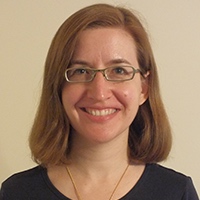Overview
Conversational systems have improved dramatically recently and are gaining adoption in industries such as e-commerce, banking, finance and real estate to name a few.
Although there is a lot of reserach done in developing conversational systems spanning areas such as dialogue systems, NLP, NLU, HCI, search and recommender systems; there are additional challenges when a product is created based on conversational systems and deployed to real world users. Research from different
areas come together when conversational systems are put in practice along with unique and additional challenges.
This workshop aims to bring researchers and practitioners together to discuss issues, learnings, challenges and
research in productization of the conversational systems and their deployment to the real world.
We invite quality research contributions, position and opinion papers addressing relevant challenges in the domain
of conversational systems. We invite submission of papers and posters of two to ten pages (including references),
representing original research, preliminary research results, proposals for new work, position and opinion papers.
This workshop is a half day workshop taking place on , Aug 24, 2020 in conjunction with KDD 2020, Virtual Conference.
To join the workshop click on this zoom meeting link
Workshop proceedings are now available!
Keynote Speakers
Amanda Stent, Bloomberg (USA)

Dialogue and Finance
Abstract:
In this talk, we survey the finance ecosystem and the history of chat and dialog technology used for trading. We discuss the importance of conversation modeling in assisting traders and in tracking compliance. Then, we discuss some complexities of modeling trading conversations, as well as our work on entity recognition and slot filling, intent recognition and conversation disentanglement.
Speaker Bio
Dr. Amanda Stent works on text analytics and discourse processing as NLP architect at Bloomberg LP. Previously she has held positions as Director, Research and Principal Research Scientist at Yahoo, as Principal Member of Technical Staff at AT&T Labs — Research, and as associate professor in the Computer Science Department at Stony Brook University in Stony Brook, NY. She holds a Ph.D. in computer science from the University of Rochester. She has authored over 90 papers on natural language processing and is co-inventor on over a dozen patents and patent applications. She is one of the rotating editors of the journal Dialogue & Discourse.
Christopher Ré, Stanford University (USA)

Bootleg: Self-Supervision for Named Entity Disambiguation
Abstract:
Mapping textual mentions to entities in a knowledge graph is a key step in assistants, called Named Entity Disambiguation (NED). A key challenge in NED is generalizing to rarely seen (tail) entities. Traditionally NED uses hand-tuned patterns to capture rare, but reliable, signals. Hand-built features make it challenging to deploy and maintain NED--especially in multiple locales. While at Apple in 2018, we built a self-supervised system for NED that was deployed in a handful of locales and that improved performance of the assistant significantly. However, due to the fog of production, it was unclear what aspects of these models were most valuable. Motivated by this experience, we built Bootleg, a clean-slate, open-source, self-supervised system to improve tail performance using a simple transformer-based architecture. Bootleg improves tail generalization through a new inverse regularization scheme to favor more generalizable signals automatically. Bootleg achieves new state-of-the-art performance on the three major NED benchmarks by up to 3.3 F1 points, and it improves performance over BERT baselines on tail slices by 50.1 F1 points. Some end-to-end experience using Bootleg in knowledge seeking queries will be described.
Bootleg is open-source at http://hazyresearch.stanford.edu/bootleg/
Speaker Bio
Christopher (Chris) Ré is an associate professor in the Department of Computer Science at Stanford University. He is in the Stanford AI Lab and is affiliated with the Statistical Machine Learning Group. His recent work is to understand how software and hardware systems will change as a result of machine learning along with a continuing, petulant drive to work on math problems. Research from his group has been incorporated into scientific and humanitarian efforts, such as the fight against human trafficking, along with products from technology and enterprise companies. He cofounded a company, based on his research into machine learning systems, that was acquired by Apple in 2017. More recently, he cofounded SambaNova systems based, in part, on his work on accelerating machine learning. He received a SIGMOD Dissertation Award in 2010, an NSF CAREER Award in 2011, an Alfred P. Sloan Fellowship in 2013, a Moore Data Driven Investigator Award in 2014, the VLDB early Career Award in 2015, the MacArthur Foundation Fellowship in 2015, and an Okawa Research Grant in 2016. His research contributions have spanned database theory, database systems, and machine learning, and his work has won best paper at a premier venue in each area, respectively, at PODS 2012, SIGMOD 2014, and ICML 2016.
Srinivas Bangalore, Interactions LLC (USA)

Who is responsible for the success of Conversational AI?
Abstract:
Advances in conversational technologies including speech recognition,
natural language understanding, dialog management, language generation
and text-to-speech synthesis have accelerated the adoption of
conversational systems by businesses and consumers alike for everyday
tasks. Even so, architecting and engineering a complex
enterprise-grade conversational system to deliver an effective and
efficient user experience involves a delicate orchestration between
technologies and personnel. From right-sizing the use cases to
designing an efficient dialog management for those use cases,
customizing the conversational technologies and evolving the system
for enterprise business, the success of a conversational system
requires a judicious balance of several metrics, often along competing
dimensions. In this talk, I will highlight the complexity of building
an enterprise-grade conversational system, and the need for a unified success metric.
Speaker Bio
Srinivas Bangalore is the Director of AI Research technologies at Interactions LLC. He was a Lead Inventive Scientist at Interactions (2015-2017) and a Principal Research Scientist at AT&T Labs--Research (1997-2014). He has a PhD in Computer Science from University of Pennsylvania and has made significant contributions to many areas of natural language processing including Spoken Language Translation, Multimodal Understanding, Language Generation and Question-Answering. He has co-edited three books on Supertagging, Natural Language Generation, and Language Translation, has authored over a 100 research publications and holds over 100 patents in these areas. Dr. Bangalore has been an adjunct associate professor at Columbia University (2005), a visiting professor at Princeton University (2008-present) and Otto Monstead Professor at Copenhagen Business School (2013). He has been awarded the Morris and Dorothy Rubinoff award for outstanding dissertation, the AT&T Outstanding Mentor Award, in recognition of his support and dedication to AT&T Labs Mentoring Program and the AT&T Science & Technology Medal for technical leadership and innovative contributions in Spoken Language Technology and Services. He has served on the editorial board of Computational Linguistics Journal, Computer, Speech and Language Journal and on program committees for a number of ACL and IEEE Speech Conferences.
Important Dates
- Submissions Due - June 15, 2020 (11: 59 P.M. AoE)
- Notification - June 30, 2020
- Camera Ready Version of Papers Due - July 10, 2020
- KDD Converse half day Workshop - August 24, 2020
We invite quality research contributions, position and opinion papers addressing relevant challenges in the domain of conversational systems. We invite submission of papers and posters of two to ten pages (including references), representing original research, preliminary research results, proposals for new work, position and opinion papers.
Topics
Topics of interest include, but are not limited to:
- Task oriented dialog and chat systems
- End-to-end learning approaches for conversational systems
- Information extraction and knowledge graphs
- Dialogue state tracking and policy learning
- Natural language processing in conversational systems
- Natural language understanding in conversational systems
- Design of conversational systems and agents
- User-interaction and user-experience design
- Preference elicitation approaches
- Cold-start issues in conversational systems
- Proactive systems
- Critiquing in conversational systems
- Question answering in conversational systems
- Personalization in conversational systems
- Recommendations-explanations in conversational systems
- Dialogue management for conversational systems
- Interaction methods in conversational systems
- Evaluation and metrics
- Integrating user feed-back and responses
- Resources and data sets
- Intent training and validation
- Intent disambiguation
- Agent deployment and management at scale
- Challenges associated with general domain conversational systems
- Challenges associated with domain specific conversational systems
- Sarcasm and humor detection and generation in conversational systems
Submission Instructions
All submitted papers and posters will be single-blind and will be peer reviewed by an international program
committee of researchers of high repute. Papers will be judged by their relevance to the workshop, especially to the main themes identified above, and their potential to generate discussion. All submissions must be formatted according to the latest ACM SIG proceedings template available at http://www.acm.org/publications/proceedings-template (LaTeX users use sample-sigconf.tex as a template). Accepted submissions will be presented at the workshop
Submissions must describe work that is not previously published, not accepted for publication elsewhere, and not currently under review elsewhere. All submissions must be in English. Please note that at least one of the authors of each accepted paper must register for the workshop and present the paper.
Submissions to KDD Converse should be made at https://easychair.org/conferences/?conf=kddconverse20
The deadline for paper submission is June 15, 2020 (11: 59 P.M. AoE)